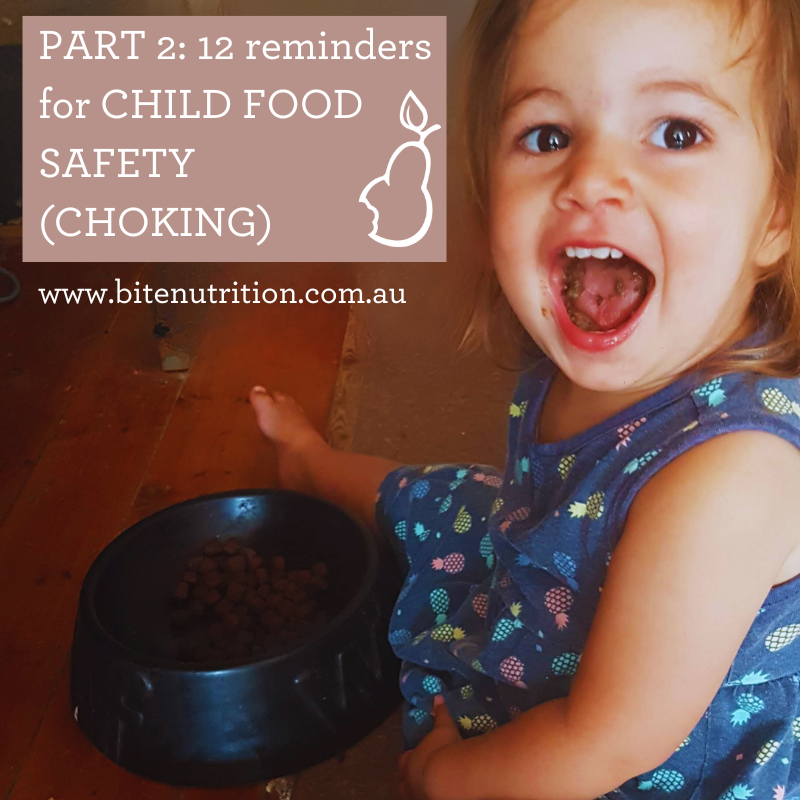Part 2: 12 Reminders for Child Safety (Choking)

Part 2 in our 3 part Child Food Safety series is a reminder on matters related to food and choking risk.
Food Safety and Hygiene
Food safety involves all aspects of providing food so that it is safe to eat – managing the risk of choking on food, avoiding allergic reactions, sensitivities and intolerances and ensuring that food is not contaminated in any way.
Choking risks for babies
Babies and young children have an increased risk of choking on food or drinks. It is important that children sit down whenever they are eating, and that they are always supervised.
It is common for young children to ‘gag’, with coughing or spluttering, while they are learning to eat. This is different to choking and is not a cause for concern. However, choking that prevents breathing is a medical emergency.
To reduce the risk of choking:
- Supervise young children whenever they are feeding.
- Do not put babies in a cot or to bed with a bottle, and do not prop bottles.
- Make sure babies are developmentally ready to eat before offering solids.
- Only feed children when they are awake and alert.
- Never force a child to eat.
- Offer foods with a suitable texture – start with smooth and soft food and then progress to family food.
- Grate, cook or mash apples, carrots and other hard fruits or vegetables before offering them to your baby.
Foods to be careful with include:
- hard fruit and vegetables such as raw carrots, celery sticks, grapes and pieces of raw apple (these should be grated, finely sliced or cooked and mashed to prevent choking)
- nuts, seeds, chips and popcorn
- tough or chewy pieces of meat
- sausages or frankfurts with skin (remove the skin or buy already skinless, then cut into small semi-circular pieces to prevent choking
- other foods that can break into hard lumps or pieces
Hard, small, round and/or sticky solid foods are not recommended because they can cause choking and aspiration.
Never leave your child unsupervised while eating.
Don't forget to share this with loved ones and subscribe to our newsletter for updates on products, articles, and services.
